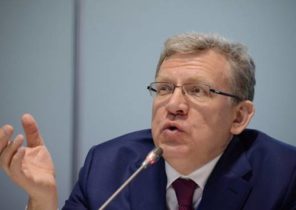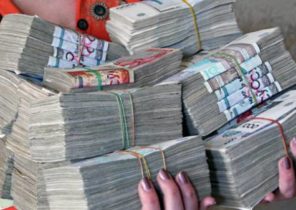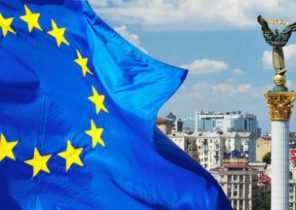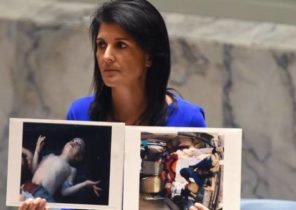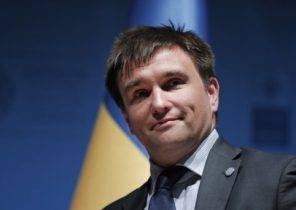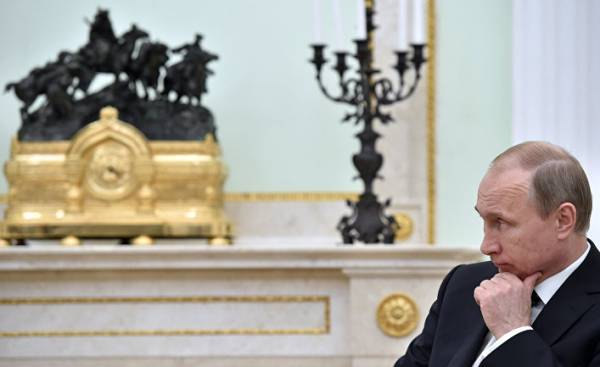
President Vladimir Putin did not travel through the Champs to the latest Russian tank “Armata”, but apart from that omission, in recent months it was possible to observe how the Kremlin is making virtually all in the hope to influence the outcome of elections in France, held last Sunday.
The fact that Russia for several years pumped money in “national front” marine Le Pen, the mystery is not aware of the loan almost 9 million euros (approximately DKK 65 million, but we can assume that the total volume of aid is much larger.
In March, Putin took Le Pen in Moscow (it is possible that the first time, but this time, the first time the press were invited), and anyone who’s seen five-minute stories, in Russian TV news over the past year can be no doubt that the Kremlin has the political support of right-wing nationalists.
In recent months we have witnessed a clear Russian attempt to launch into circulation a variety of “horror stories” aimed against the centrist Emmanuel Makron. And in the last phase of the race, these attempts intensified.
Dot and were supplied to the hacking before the last round of elections when campaigning in the French media was banned. Hackers who have access to Russian keyboard, threw it in the network of large number of (genuine and/or fake) e-mails from the headquarters of Macron.
There is a Russian proverb, which States that “everything new is well forgotten old”, and both methods and the level of aggressiveness of Russia’s actions in France recently involuntarily forced to remember the Soviet times.
During Soviet times, vbuhivayut of the enormous amount of “friendly” Western party (only then it was the Communists, not the nationalists) in their media and various organizations representing them officially.
Former Kremlin was the same as the current Kremlin, is prone to spreading misinformation (although the means to do this was then not so high-tech). This task has dedicated his career to tens of thousands of functionaries of the Soviet KGB.
And there is no particular reason to be surprised that these old methods shook off the dust. Vladimir Putin and his inner circle — people who are over 60, they grew up under the Soviet system. Their mentality and attitude towards the world was formed in a powerful but reactionary intelligence service.
But why the Kremlin is making such obvious efforts, challenging the political systems in the West?
Friendly candidates
Itself begs an explanation, that in Moscow believe that its intervention can ensure the election of a friendly candidate.
After the resounding success achieved during the election campaign in the United States, this view seems to outweigh all the same.
HACKERS
• Russian hacker group Fancy Bear was involved in connection with cyber attacks, in particular, the campaign headquarters of Emmanuel Macron, the election campaign of Hillary Clinton in the U.S. last year and the Ministry of defence of Denmark.
• I believe that Fancy Bear tied to the GRU, Russian military intelligence.
Sources: Wired, JP
And still: the explanation is not quite convincing. In the end, the outcome of the elections in the West do not define the operations of the Russian special services, the money and the media, and it is well understood in Moscow, where impartial observers it was quite clear that the chances of Le Me — despite all the support was minimal.
Another and more plausible explanation is that attempts to create problems for Western companies. Extending a helping hand to nationalist and other candidates who challenge the established order, by a very modest investment to destroy a lot of things, in both the short and long term.
If slander, cyber-attacks and rude cash can provide wind in the sails upstarts-populists and to weaken the West, the Kremlin has every reason to rejoice.
This is particularly advantageous, because Western leaders have clearly not know how to answer all this. You can threaten with the forefinger or to frown, but it will not cause any concern in the Russian capital.
Which points to another possible explanation for Russian behavior: its potential as a deterrent.
Putin is well aware that he could not play first fiddle in the politics of Washington, Paris or Berlin. He’s actually interested in suppressing opposition in Moscow and the restoration of the dominant role of Moscow in the former USSR.
And if the West will abandon some of their positions and guidelines in those countries in exchange for “peaceful coexistence”, it means that investments in France and other places gave a very good income.
